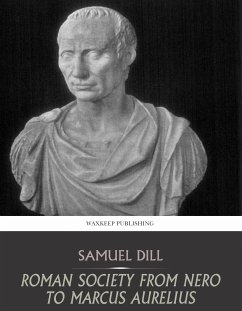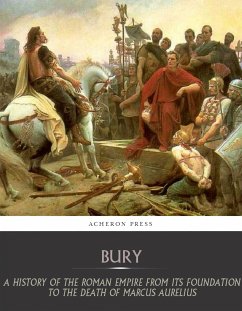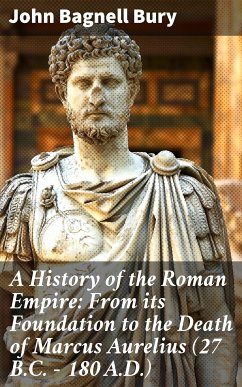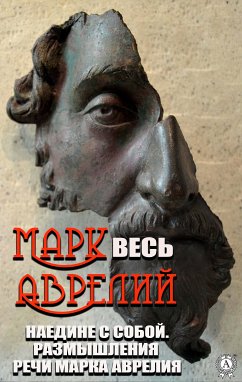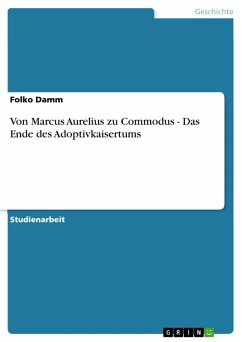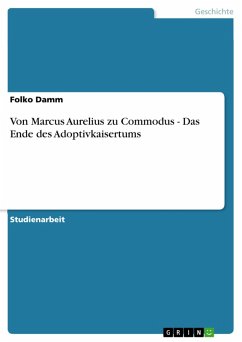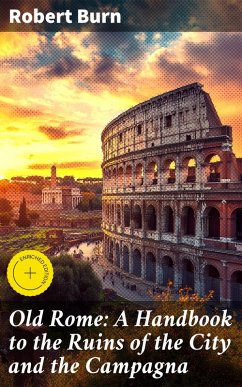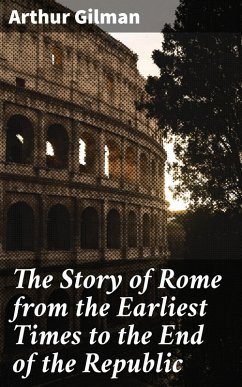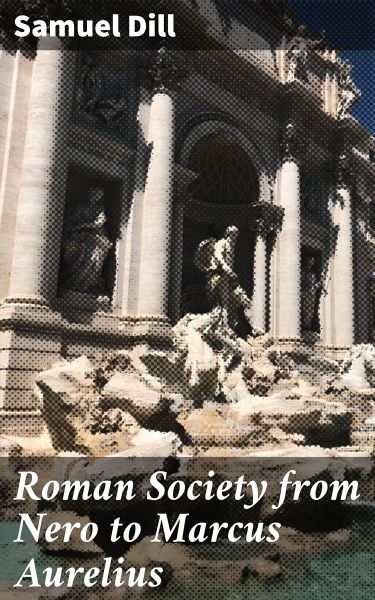
Roman Society from Nero to Marcus Aurelius (eBook, ePUB)
Enriched edition. Exploring Roman Society During Imperial Rule
Kommentar: Elliott, Julian / Redaktion: Good Press
Versandkostenfrei!
Sofort per Download lieferbar
1,99 €
inkl. MwSt.
Weitere Ausgaben:

PAYBACK Punkte
0 °P sammeln!
In "Roman Society from Nero to Marcus Aurelius," Samuel Dill artfully navigates the complex social and political landscape of early imperial Rome, illuminating the nuanced interplay between its elite strata and the broader populace. Employing a meticulous historical methodology coupled with a literary style that balances scholarly rigor and accessibility, Dill examines the evolution of societal norms and values during a pivotal epoch, from the tyranny of Nero to the philosophical underpinnings of Stoicism embodied by Marcus Aurelius. His exploration is underpinned by a wide range of primary so...
In "Roman Society from Nero to Marcus Aurelius," Samuel Dill artfully navigates the complex social and political landscape of early imperial Rome, illuminating the nuanced interplay between its elite strata and the broader populace. Employing a meticulous historical methodology coupled with a literary style that balances scholarly rigor and accessibility, Dill examines the evolution of societal norms and values during a pivotal epoch, from the tyranny of Nero to the philosophical underpinnings of Stoicism embodied by Marcus Aurelius. His exploration is underpinned by a wide range of primary sources, which he deftly interprets to reveal the underlying currents of cultural, economic, and moral transformation in Roman society. Samuel Dill, a prominent scholar of Roman history, drew upon his extensive educational background and a profound interest in classical philosophy to craft this pivotal work. His acute awareness of the social and political conditions of his time, coupled with an academic focus on history, philosophy, and literature, informed his depiction of Roman society's intricate tapestry. Dill's insights reflect not only a historical lens but also a philosophical quest to understand the human experience within the societal structures of Rome. This indispensable text is highly recommended for readers seeking a deeper understanding of the sociopolitical dynamics of ancient Rome, as well as for scholars of classical studies. Dill's eloquent prose and incisive analysis make this a vital contribution to both historical scholarship and the broader discourse on the legacy of Roman civilization. In this enriched edition, we have carefully created added value for your reading experience: - Hand-picked Memorable Quotes shine a spotlight on moments of literary brilliance. - Interactive footnotes clarify unusual references, historical allusions, and archaic phrases for an effortless, more informed read.
Dieser Download kann aus rechtlichen Gründen nur mit Rechnungsadresse in A, B, BG, CY, CZ, D, DK, EW, E, FIN, F, GR, H, IRL, I, LT, L, LR, M, NL, PL, P, R, S, SLO, SK ausgeliefert werden.




